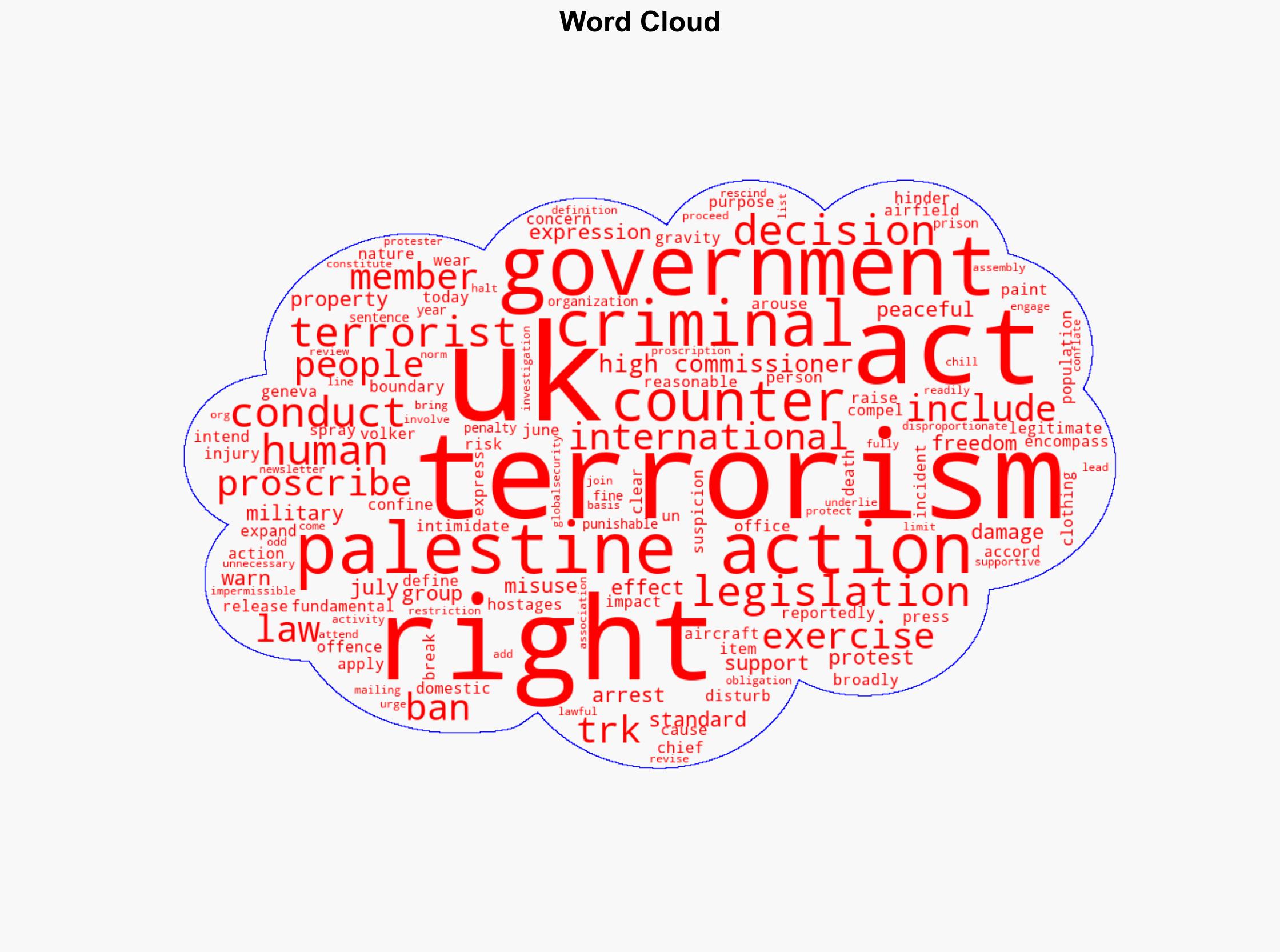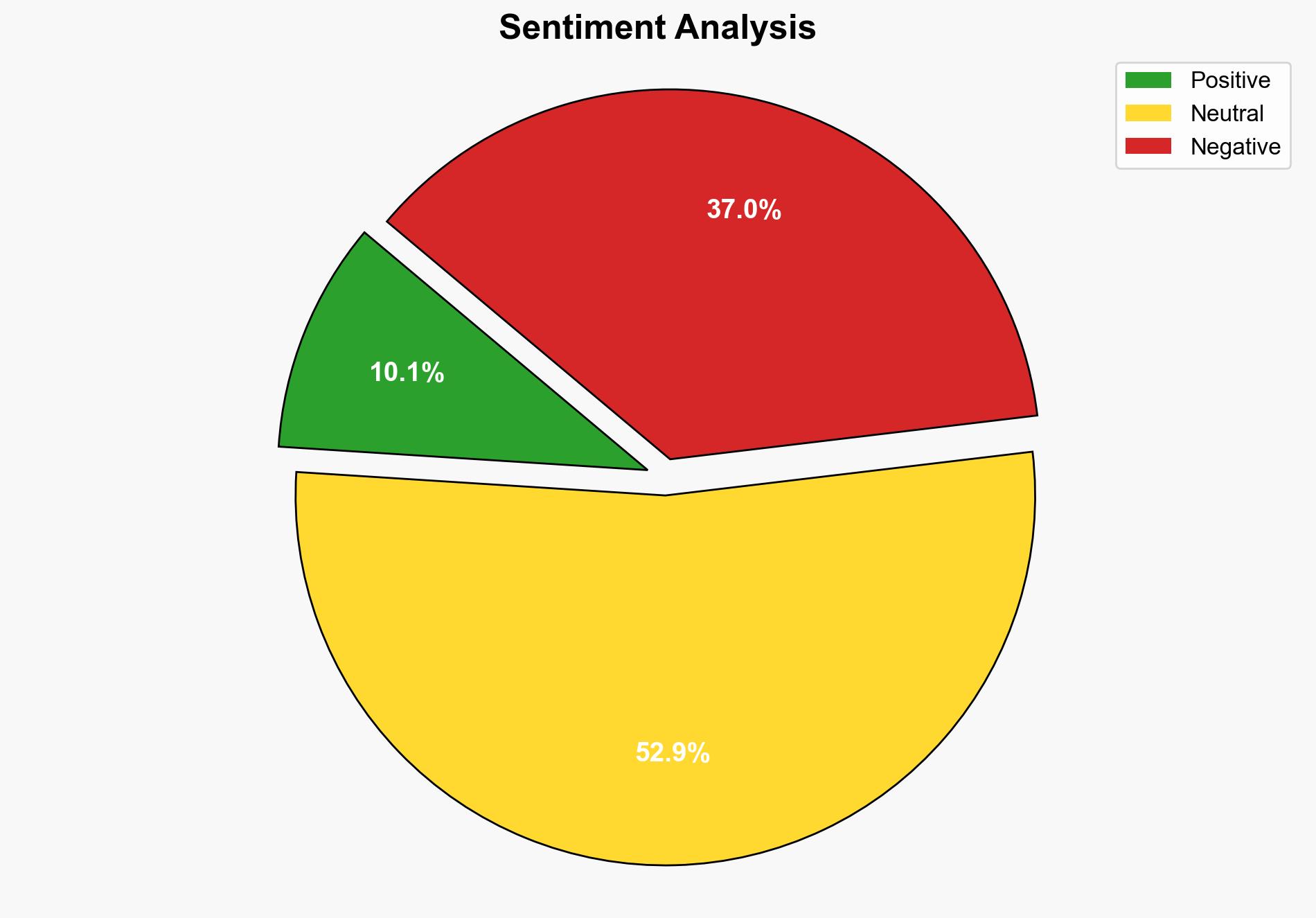UK Palestine Action ban ‘disturbing’ misuse of UK counter-terrorism legislation Trk warns – Globalsecurity.org
Published on: 2025-07-26
Intelligence Report: UK Palestine Action ban ‘disturbing’ misuse of UK counter-terrorism legislation Trk warns – Globalsecurity.org
1. BLUF (Bottom Line Up Front)
The UK government’s decision to proscribe Palestine Action under counter-terrorism legislation is controversial and may represent an overreach of legal authority, potentially infringing on human rights. The most supported hypothesis suggests that the ban is a strategic move to suppress dissent rather than a necessary counter-terrorism measure. Confidence level: Moderate. Recommended action: Reassess the application of counter-terrorism laws to ensure alignment with international human rights standards.
2. Competing Hypotheses
1. **Hypothesis A**: The UK government’s ban on Palestine Action is a legitimate counter-terrorism measure aimed at preventing activities that could escalate into more severe threats.
2. **Hypothesis B**: The ban is primarily a political maneuver to suppress dissent and limit the activities of groups critical of UK policies, rather than a genuine counter-terrorism effort.
Using the Analysis of Competing Hypotheses (ACH) 2.0, Hypothesis B is better supported. The broad application of terrorism legislation to property damage and peaceful protest activities suggests a possible overreach, aligning with concerns raised by international human rights bodies.
3. Key Assumptions and Red Flags
– **Assumptions**: Hypothesis A assumes that all actions by Palestine Action pose a legitimate threat to national security. Hypothesis B assumes the UK government is using counter-terrorism laws to suppress political dissent.
– **Red Flags**: The broad definition of “terrorist act” under UK law could be misused. Lack of clear evidence linking Palestine Action’s activities to terrorism raises concerns.
– **Blind Spots**: Potential bias in the interpretation of what constitutes a terrorist act; lack of transparency in the decision-making process.
4. Implications and Strategic Risks
– **Geopolitical**: The ban could strain UK relations with international human rights organizations and potentially affect its global standing.
– **Psychological**: May lead to a chilling effect on legitimate protest and dissent, increasing public distrust in government.
– **Cascading Threats**: Overuse of counter-terrorism laws could set a precedent for future suppression of civil liberties, leading to domestic unrest.
5. Recommendations and Outlook
- Conduct a comprehensive review of the application of counter-terrorism laws to ensure they are not infringing on civil liberties.
- Engage with international human rights bodies to align domestic laws with global standards.
- Scenario Projections:
- Best: The UK revises its counter-terrorism laws, enhancing human rights protections.
- Worst: Continued misuse leads to significant domestic and international backlash.
- Most Likely: Partial reforms are implemented, but concerns over civil liberties remain.
6. Key Individuals and Entities
– Volker Türk, UN Human Rights Chief
– Palestine Action, protest group
7. Thematic Tags
national security threats, human rights, counter-terrorism, political dissent





